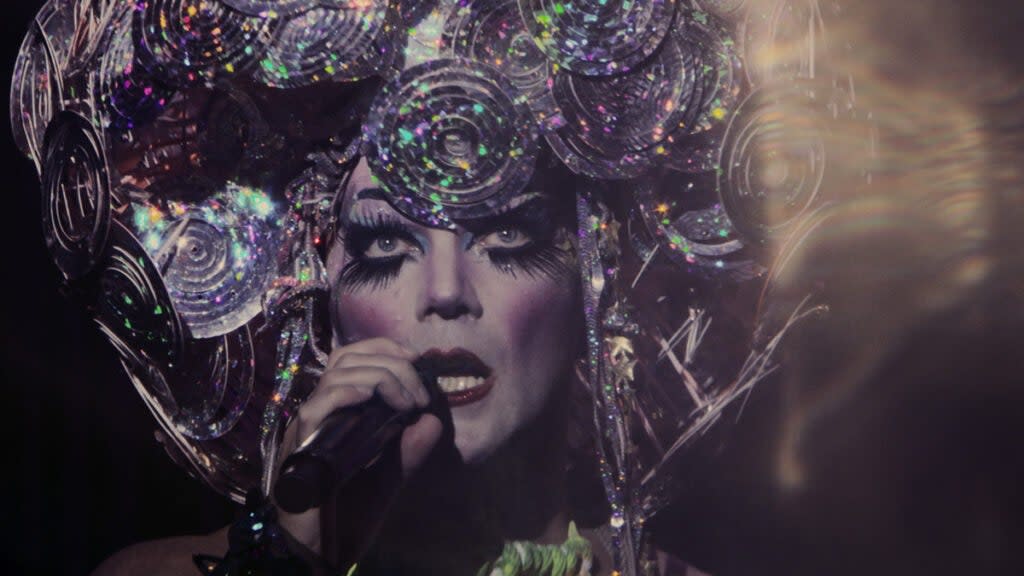‘Taylor Mac’s 24-Decade History of Popular Music’ Review: A Powerful Film Not For the Uninitiated

- Oops!Something went wrong.Please try again later.
- Oops!Something went wrong.Please try again later.
- Oops!Something went wrong.Please try again later.
- Oops!Something went wrong.Please try again later.
From Rob Epstein and Jeffrey Friedman, the Oscar-winning filmmakers of “The Times of Harvey Milk” and “Common Threads: Stories From the Quilt,” the documentary “Taylor Mac’s 24-Decade History of Popular Music” is something of a CliffsNotes version of the performance artist’s mammoth, Pulitzer Prize-shortlisted day-long musical revue that encompassed 246 songs culled from 1776 to 2016. Filming took place during its world premiere between Oct. 8 and 9, 2016, at St. Ann’s Warehouse in Brooklyn, N.Y. Since then, the piece has been staged as four 6-hour shows.
“Maybe you noticed, this is my subjective take on history,” Mac said during the live set. “I am not interested in this show being about history as much as I am interested in it being about all of us in this room have a lot of history on our backs and we’re trying to figure out what to do with it.”
This little nugget best encapsulates the intention behind the entire enterprise, but unfortunately it does not surface until half an hour in due to the movie’s chronological nature. Epstein and Friedman provide little context for those going in cold, so initially it can be an alienating experience, just as many of those songs were to Mac.
Performing in elaborate and often outrageous makeup and costumes, Mac narrates an oral history based on the songs and their respective times, with each decade spanning an hour of the show. Many songs from the 18th to the early 20th centuries feature problematic themes and lyrics about the Trail of Tears, slavery, yellowface, WWI, the Depression, the Cold War, redlining or the AIDS epidemic. For the late 20th to 21st centuries, the show strays from the dictionary definition of pop music and pivots toward more fringe acts such as Pansy Division and Ferron. At the end of each hour, a musician would depart the stage, representing those who died of AIDS.
Also Read:
Tribeca Festival 2023: See the Star-Studded Red Carpet Arrivals (Photos)
The filmmakers bypass the developmental and rehearsal stages of the show entirely, so the only bits of outside background we get are interviews with crew members and behind-the-scenes footage from photoshoots. Machine Dazzle, the costume designer, has created sartorial pastiches involving hot dogs, 3D glasses and cassette tapes, among other things, that evoke flashbacks of Tim Gunn in the “Project Runway” workroom.
It all feels niche and indulgent, akin to a Marvel Studios movie marathon until the show reaches the performance of “Coal Black Rose” from 1829. Mac instructs the audience members, all blindfolded during this segment, to not applaud for this song about the sexual assault of an enslaved woman. Then, the show conjures the alphabet song to illustrate the Indian Removal Act. While covering Ted Nugent’s 1975 “Snakeskin Cowboy,” a song about gay bashing, Mac implores audience members to find dance partners of the same gender to counter the nervous laughter that accompanies intimacy with strangers in public spaces, a potential symptom of internalized homophobia.
This is much more than a drag queen doing cabaret, but Epstein and Friedman don’t let you know it up front or give casual viewers any reason to stick with the documentary. Mac is extremely thoughtful, having spent more than a decade working on the show, but the movie tells us little about what took place before the world premiere: the moment of inspiration, the researching, writing, fundraising, workshopping, rehearsing. These are not discussed even during the interviews. There’s no mention of its acclaim or third-party commentators corroborating its significance. We see some audience members crashing in the lobby and on others’ laps, but no word on bathroom breaks or meals during the 24 hours, nor on those patrons’ takeaways from the experience.
Across the country, the history taught in schools is contested. Queer kids are harassed. Drag queen story hours are protested. Mac’s “A 24-Decade History of Popular Music” is a powerful counter to these cultural forces. The documentary reflects that accordingly, but it’s seemingly giving up on the uninitiated who need to hear its message the most.
The movie broadcasts June 27 on HBO and Max.

